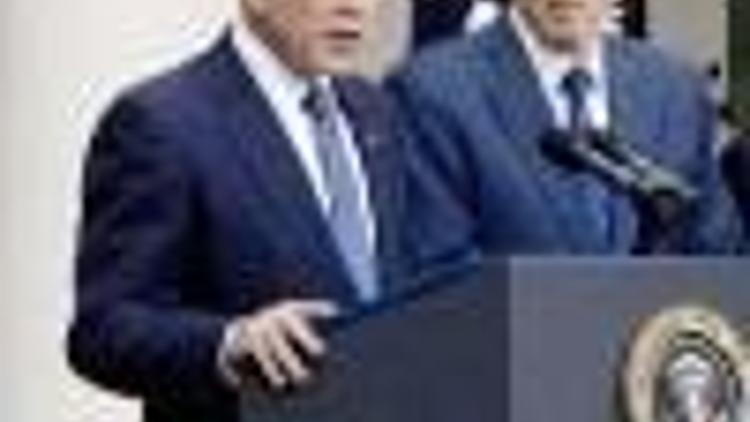Paulson says foreign banks can use United States rescue facility
Güncelleme Tarihi:

U.S. Treasury Secretary Henry Paulson said on Sunday that foreign banks will be able to unload bad financial assets under a $700 billion U.S. proposal aimed at restoring order during a devastating financial crisis. (UPDATED)
"Yes, and they should. Because ... if a financial institution has business operations in the United States, hires people in the United States, if they are clogged with illiquid assets, they have the same impact on the American people as any other institution," Paulson said on ABC television's "This Week with George Stephanopolous."
The Bush administration asked Congress on Saturday for $700 billion to bail out firms burdened with bad mortgage debt, seeking extraordinary authority as it tackles the worst financial crisis since the Great Depression.
Democratic lawmakers, who control both houses of Congress, said they hoped to approve the bailout quickly but wanted changes such as more oversight, limits on executive pay at participating firms, and assistance for homeowners.
Paulson would have sweeping powers over the massive war chest and his decisions would not be reviewed by any court, according to a copy of the draft legislation obtained by Reuters.
The government could acquire up to $700 billion in home and commercial mortgages and related assets from U.S.-headquartered banks and other institutions over the next two years.
But even the conditions on the type of assets and the source of them could be waived by the Treasury secretary, in consultation with the chairman of the Federal Reserve, if necessary to stabilize markets, according to a statement issued late on Saturday by the Treasury.
To allow for the bailout, the U.S. government's debt limit would rise to $11.315 trillion from $10.615 trillion.
The bailout plan follows a wrenching week that transformed Wall Street with Lehman Brothers' failure, the agreed sale of Merrill Lynch & Co and a government takeover of ailing insurer AIG.
The debt plan was hatched amid grave concerns that other major banks could collapse and that credit markets were close to freezing, threatening the functioning of the U.S. economy.
Showing more deals may still be in the works, Morgan Stanley's board was scheduled to meet on Saturday to consider a possible takeover by Wachovia Bank or selling a bigger stake to China Investment Corp., according to sources familiar with the situation.
Senior Bush administration officials have pressed their counterparts in Japan, Germany, Britain and other nations to establish similar rescue plans for their own troubled financial firms, The Washington Post reported in its Sunday editions.
With the House of Representatives and Senate aiming to consider it within days, aides for lawmakers from both parties were expected to pore over the hastily drafted plan all weekend.
Treasury Secretary Henry Paulson "is in effect becoming the dictator of the American financial system for a few months, subject to congressional oversight," said Wall Street historian John Steele Gordon, author of a book about the national debt.
DEMOCRATS CRITICAL
Congressional Republicans generally praised the Bush plan and called for its swift enactment, while Democrats said it left important questions unanswered and needed work.
House Speaker Nancy Pelosi said Democrats would work with the Bush administration to swiftly respond to the turmoil, but would strengthen the proposal.
"We will also seek to protect lower- and middle-income Americans ... from the fallout of the ongoing Wall Street crisis, by enacting an economic recovery package that creates jobs and returns growth to our economy," she said.
But Senate Republican Leader Mitch McConnell of Kentucky said "now is not the time for partisan plans or pet projects."
New York Democratic Sen. Charles Schumer, chairman of Congress' Joint Economic Committee, whose state is home to many large financial firms, said speed was essential despite the plan's shortcomings.
"The aim is to get this on the president's desk by Friday," Schumer told a press conference in New York City.
President George W. Bush said he initially thought the government could deal with the crisis "one issue at time," but the risk of more trouble required bold action to save jobs and retirement accounts.
"I'm sure there are some of my friends out there saying, I thought this guy was a market guy; what happened to him?" Bush said at the White House.

